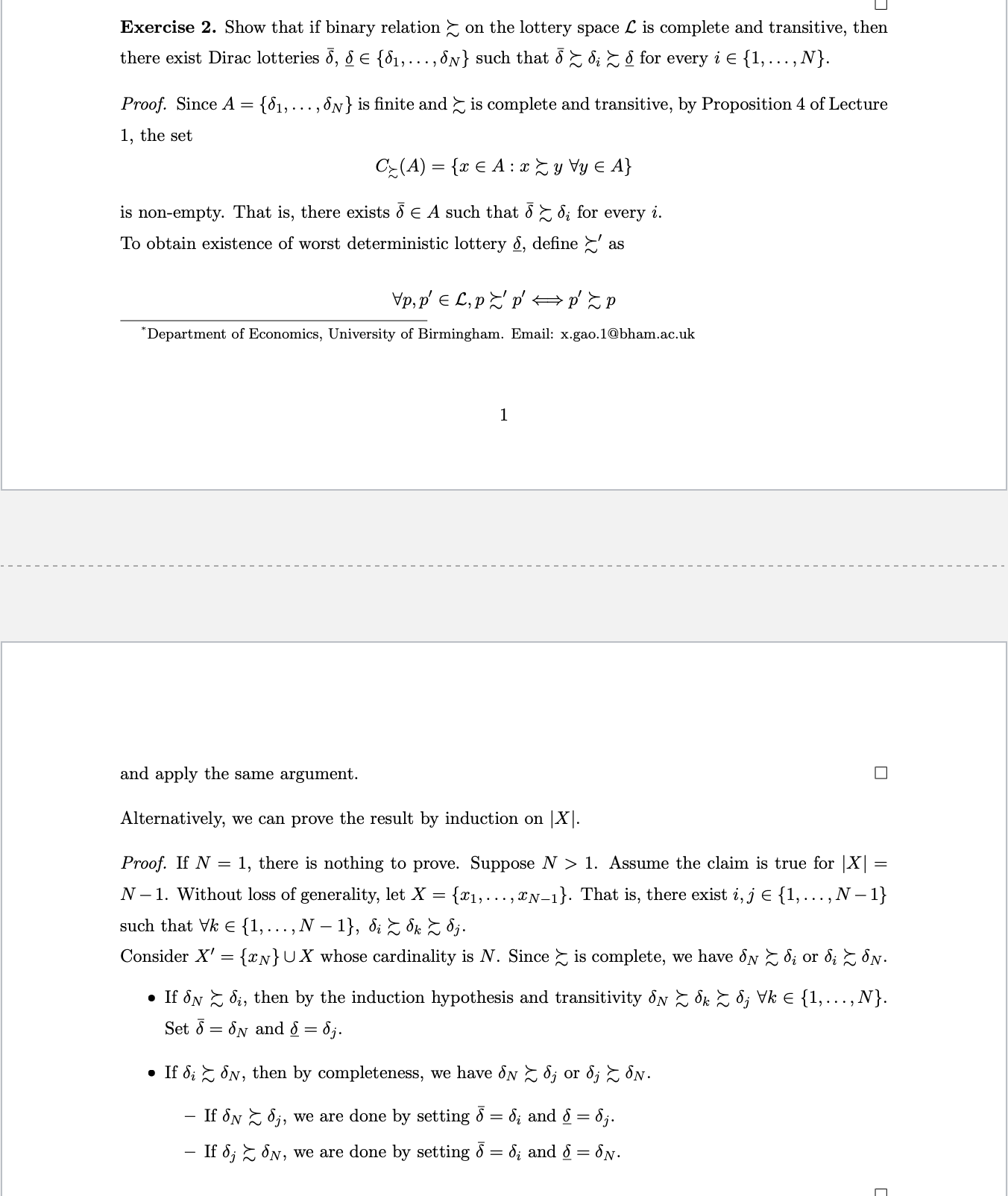Answered step by step
Verified Expert Solution
Question
1 Approved Answer
Exercise 2. Show that if binary relation on the lottery space L is complete and transitive, then there exist Dirac lotteries 5, 8 =

Exercise 2. Show that if binary relation on the lottery space L is complete and transitive, then there exist Dirac lotteries 5, 8 = {1,...,N} such that 8 8 8 for every i = {1,...,N}. Proof. Since A = 1, the set 1,...,N} is finite and is complete and transitive, by Proposition 4 of Lecture C(A) = {x A x y Vy A} is non-empty. That is, there exists 5 A such that 5 d for every i. To obtain existence of worst deterministic lottery , define 'as Vp, p' L,pp' => p' p *Department of Economics, University of Birmingham. Email: x.gao.1@bham.ac.uk 1 and apply the same argument. Alternatively, we can prove the result by induction on |X|. Proof. If N = 1, there is nothing to prove. Suppose N > 1. Assume the claim is true for |X| = N-1. Without loss of generality, let X = {x1,...,xN-1}. That is, there exist i, j = {1, ..., N 1} such that Vk {1,..., N - 1}, di Z dk Z dj. Consider X' = {N} UX whose cardinality is N. Since is complete, we have N di or di N. If N di, then by the induction hypothesis and transitivity N 8k d; Vk = {1, ..., N}. Set If di = 8 and = d;. N, then by completeness, we have SN d; or d; N. - If N ;, we are done by setting 5 = d and = 8;. -If 8; N, we are done by setting = d; and = N. -
Step by Step Solution
There are 3 Steps involved in it
Step: 1

Get Instant Access to Expert-Tailored Solutions
See step-by-step solutions with expert insights and AI powered tools for academic success
Step: 2

Step: 3

Ace Your Homework with AI
Get the answers you need in no time with our AI-driven, step-by-step assistance
Get Started


